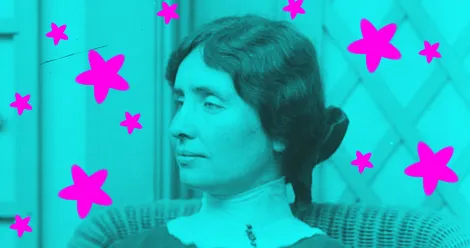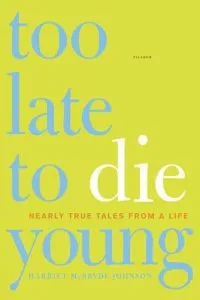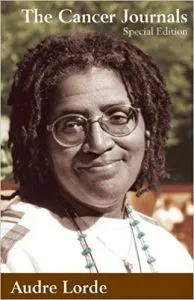
Not Voiceless: 6 Books by “Gravely” Disabled People
This content contains affiliate links. When you buy through these links, we may earn an affiliate commission.
There is no shortage of books that feature disability; Wonder and Me Before You are just a couple of examples of the success an abled author can have when they decide to write about something they have no personal experience with and little knowledge about. Here’s a radical idea: instead of speculating about what the inner world of a person with a particular disability might be like, why don’t we listen to them instead in books by disabled people?
 There’s a popular idea among charity-minded people that they must be a “voice for the voiceless.” Are the people they’re talking about really voiceless, though? Not usually. Even in the gate-kept world of publishing, there is a multitude of writing by disabled people, even “gravely” disabled people. (Note on my use of the word “gravely”: this is a medicalized term that does not have a specific meaning and is not particularly useful. I use it here to indicate a person who might be erroneously called “voiceless.”) Even people who are literally voiceless are not actually voiceless. Not all disabled people can or want to communicate through words, though they communicate in myriad other ways. They, too, should be listened to; that is, the person with whom they are communicating should seek to understand what they are saying. Though there are not yet, to my knowledge, books cataloguing the communications of people with these types of disabilities, my hope is that that will change.
If there are so many disabled people out there communicating, and some are writing for publication, why do abled people feel the need to speak for them? The problem is not that some people are voiceless; the problem is that many people are unwilling to listen. The good news is that, thanks to publishing, even people who have never met someone with a particular disability can seek to understand them through their writing. Here are six books by disabled people that represent a slender branch in the dense forest of disabled people’s writing.
There’s a popular idea among charity-minded people that they must be a “voice for the voiceless.” Are the people they’re talking about really voiceless, though? Not usually. Even in the gate-kept world of publishing, there is a multitude of writing by disabled people, even “gravely” disabled people. (Note on my use of the word “gravely”: this is a medicalized term that does not have a specific meaning and is not particularly useful. I use it here to indicate a person who might be erroneously called “voiceless.”) Even people who are literally voiceless are not actually voiceless. Not all disabled people can or want to communicate through words, though they communicate in myriad other ways. They, too, should be listened to; that is, the person with whom they are communicating should seek to understand what they are saying. Though there are not yet, to my knowledge, books cataloguing the communications of people with these types of disabilities, my hope is that that will change.
If there are so many disabled people out there communicating, and some are writing for publication, why do abled people feel the need to speak for them? The problem is not that some people are voiceless; the problem is that many people are unwilling to listen. The good news is that, thanks to publishing, even people who have never met someone with a particular disability can seek to understand them through their writing. Here are six books by disabled people that represent a slender branch in the dense forest of disabled people’s writing.
Let’s start with one of my heroes! Harriet McBryde Johnson was an attorney, author, and activist who focused much of her work on disability advocacy. She had a progressive neuromuscular disease and made use of a motorized wheelchair, personal care assistant, feeding tube, and other adaptations that are often sensationalized by those not familiar with them. This hilarious and searingly insightful book is her memoir. It is a fabulous introduction to the tenets of disability rights for those who want something easily digestible (a spoonful of sarcasm makes the theory go down); it is also an essential read for people at any point on the disability wokeness spectrum.
I don’t need to sell Audre Lorde’s writing to you, do I? She’s only one of the greatest writers and theorists ever. This book focuses on her experience with breast cancer and mastectomy. Like her other writing, it embraces the oneness of personal experience and political thought; like her other writing, it is excellent.
Bob Flanagan was a performance artist and writer whose work interrogated issues of pain and pleasure. Much of his performance art centered around his own body, the locus of his pain and pleasure from both cystic fibrosis and sadomasochism. Reading and watching his work is a bodily experience in itself; sympathetic nerves fire off left and right as he describes a spectrum of bodily sensations never discussed in polite company. This is a chronicle of the last year of his life.

Image of Helen Keller from the U.S. Library of Congress. Edits by Lisa Ruiz.


